
This is the English translation of a Turkish language article that originally published by AVİM on 27 March 2025.
On 3-4 April 2025, the European Union (EU)-Central Asia Summit will be held for the first time, with the participation of European Council President António Costa and European Commission President Ursula von der Leyen. The summit will take place in Samarkand, the capital of Uzbekistan, hosted by Uzbekistan’s President Shavkat Mirziyoyev. The leaders of Kazakhstan, Kyrgyzstan, Tajikistan, and Turkmenistan will also attend the summit.
The summit represents a significant initiative to demonstrate the EU’s geopolitical interest in intensifying bilateral relations with Central Asia and fostering regional cooperation[1]. In light of the changing geopolitical landscape due to the Russia-Ukraine war and ongoing developments in Afghanistan, relations between the EU and Central Asia have gained strategic importance over the years.
European Council President António Costa, while emphasizing the prevalence of order and fragmentation in today’s world, has underscored that the only viable solution for the EU is to build stronger partnerships to advance peace and prosperity. He noted that a multipolar world necessitates more and tailored collaborations. In this context, the inaugural EU-Central Asia Summit holds significant importance for working together to promote peace, security, and sustainable development within the framework of full respect for international law[2].
At the summit to be held in April, EU officials have stated that they will underscore their commitment to enhancing cooperation in areas of mutual interest, including transport and digital connectivity within the region and with the EU, underground resources, economic and security cooperation, and energy transitions[3].
The Importance of Central Asia for the EU
High-level relations between the EU and the Central Asian Republics have intensified in recent years; two leaders’ meetings were held in Kazakhstan in October 2022 and in Kyrgyzstan in June 2023. Additionally, numerous ministerial-level meetings, the most recent of which took place in Luxembourg in 2023, have been conducted, and a joint roadmap has been established to deepen ties between the EU and Central Asia. This roadmap outlines concrete action points to enhance interregional dialogue, including a commitment to organize a summit.
In 2019, the EU adopted a new Strategy for Central Asia, which highlighted the region’s growing strategic importance for EU interests and built on positive developments in regional cooperation over the years. The updated strategy aims to promote a stronger, modern, and non-exclusive partnership with Central Asian countries, with the goal of fostering the region’s development as a sustainable, more resilient, prosperous, and closely interconnected economic and political space.
EU officials note that the EU is the region’s second-largest trading partner and the largest investor, accounting for more than 40% of investments in the region.
Central Asia’s Belatedly Recognized Potential
It is evident that the importance of the Central Asian Republics for the EU has grown in recent years. However, Central Asia entered Türkiye’s foreign policy radar in a significant way with the dissolution of the Soviet Union in 1991. The independence of Kazakhstan, Kyrgyzstan, Uzbekistan, Tajikistan, and Turkmenistan opened a window of opportunity for Türkiye based on historical, cultural, and linguistic ties. This period marked a turning point in shaping Türkiye’s vision of the “Turkic World.”
Türkiye has initiated multifaceted endeavors in Central Asia across economic, cultural, diplomatic, and security domains. Concrete examples of these initiatives can be cited. The Turkish Cooperation and Coordination Agency (TİKA), established in 1992, has enhanced Türkiye’s soft power in Central Asia through development aid, infrastructure projects, and educational programs. Another example is the Organization of Turkic States (OTS). Founded in 2009 as the Cooperation Council of Turkic-Speaking States (Turkic Council), it evolved into the Organization of Turkic States in 2021. The OTS aims to foster joint economic, security, and cultural cooperation.
Relations between Türkiye and the Central Asian Republics in the fields of economy and energy are developing. The recent agreement between Türkiye and Turkmenistan aims to facilitate the delivery of Turkmen gas, albeit in limited volumes, to Europe[4]. As a reminder, the Europe-Caucasus-Asia Transport Corridor (TRACECA), initiated by the EU in 1993[5], aligns with Türkiye’s goal of serving as a main axis between Central Asia and Europe. Türkiye has played an active role in this project and has received logistical support from the EU[6]. Today, this main axis has materialized as the Middle Corridor. The EU has, in principle, expressed a favorable view toward the idea of transporting Turkmen gas to Europe via Türkiye. This new development adds further strength to Türkiye’s position as an energy hub between East and West.
The suspension of Türkiye’s EU accession process in 2019 has complicated joint projects between the EU and Türkiye in Central Asia. Instead of integrating Türkiye’s initiatives into its own strategy, the EU has preferred to directly negotiate Enhanced Partnership and Cooperation Agreements (EPCAs) with Central Asian countries (Kazakhstan[7], Kyrgyzstan[8], Uzbekistan[9], Tajikistan[10], Turkmenistan[11]). Türkiye has not been included in these agreements.
Central Asia holds a significant place in Turkish foreign policy. Since 1991, a consistent policy toward the region has been pursued through initiatives such as TİKA, the OTS, and economic endeavors. While the EU has partially responded positively to these initiatives, its own Central Asia strategy and uncertainties in its relations with Türkiye have hindered full cooperation. The planned EU-Central Asia Summit on 3-4 April 2025 stands out as an opportunity to initiate dialogue between Türkiye and the EU. The EU’s interest in Central Asia is welcomed. Central Asia is a region that the EU should particularly focus on. It is understood that the EU is also seeking ways to become a significant actor in Central Asia. It is evident that the EU has an interest in securing a share of the region’s underground resources. The bilateral agreements signed between the EU and the Central Asian Republics are important; however, it must be strongly emphasized that the EU can achieve success in this region by cooperating with Türkiye while pursuing tangible gains.
*Image: https://www.martenscentre.eu/blog/eu-central-asia-an-underdeveloped-relationship/.
[1] “First EU – Central Asia Summit To Take Place on 3-4 April 2025,” Delegation of the European Union to Uzbekistan, 13 February 2025, https://www.eeas.europa.eu/delegations/uzbekistan/first-eu-central-asia-summit-take-place-3-4-april-2025_en?s=233.
[2] First EU – Central Asia Summit To Take Place on 3-4 April 2025,” Delegation of the European Union to Uzbekistan, 13 February 2025.
[3] First EU – Central Asia Summit To Take Place on 3-4 April 2025,” Delegation of the European Union to Uzbekistan, 13 February 2025.
[4] Rauf Mamadov, “Doğal Gazda Yeni Dönem: Türkiye, Türkmen gazı ve Avrupa’yı Birbirine Bağlıyor,” Anadolu Agency, 1 March 2025, https://www.aa.com.tr/tr/analiz/dogal-gazda-yeni-donem-turkiye-turkmen-gazi-ve-avrupayi-birbirine-bagliyor/3496914.
[5] Avrupa Kafkasya Asya Ulaştırma Koridoru (TRACECA), Dışişleri Bakanlığı, https://www.mfa.gov.tr/avrupa-kafkasya-asya-ulastirma-koridoru.tr.mfa.
[6] “Avrupa Birliği – Türkiye Orta Asya’nın Çok Boyutlu Güvenliği,” TASAM, 29 April 2008, https://tasam.org/tr-TR/Icerik/27/avrupa_birligi_-_turkiye_orta_asyanin_cok_boyutlu_guvenligi.
[7] “Enhanced Partnership and Cooperation Agreement between the European Union and its Member States, of the one part, and the Republic of Kazakhstan,” EUR-LEX, 26 October 2015, https://eur-lex.europa.eu/legal-content/EN/TXT/?uri=CELEX:32016D0123.
[8] “Kyrgyz Republic: Signing of Enchanced Partnership and Cooperation Agreement (EPCA) with the European Union,” European Union External Action, 25 June 2024, https://www.eeas.europa.eu/eeas/kyrgyz-republic-signing-enhanced-partnership-and-cooperation-agreement-epca-european-union_en.
[9] “EU-Uzbekistan Agreement,” European Union, https://policy.trade.ec.europa.eu/eu-trade-relationships-country-and-region/countries-and-regions/central-asia/documents_en.
[10] “Tajikistan: Negotiations on a new Enhanced Partnership and Cooperation Agreement with the EU,” European Union External Action, 2 June 2023, https://www.eeas.europa.eu/eeas/tajikistan-negotiations-new-enhanced-partnership-and-cooperation-agreement-eu_en.
[11] “EU-Turkmenistan Relations,” European Union External Action, 28 February 2025, https://www.eeas.europa.eu/eeas/eu-turkmenistan-relations_en.
© 2009-2025 Center for Eurasian Studies (AVİM) All Rights Reserved
No comments yet.
-
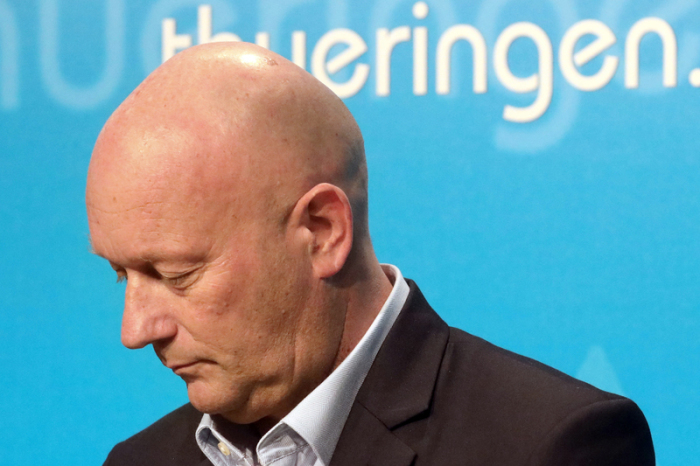 EXTREME RIGHT IS GAINING STRENGTH IN GERMANY
EXTREME RIGHT IS GAINING STRENGTH IN GERMANY
Hazel ÇAĞAN ELBİR 21.02.2020 -
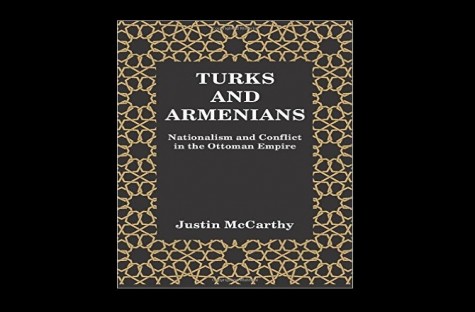 CHAPTER BY CHAPTER SYNOPSIS AND REVIEW OF TURKS AND ARMENIANS: NATIONALISM AND CONFLICT IN THE OTTOMAN EMPIRE BY JUSTIN MCCARTHY - 7
CHAPTER BY CHAPTER SYNOPSIS AND REVIEW OF TURKS AND ARMENIANS: NATIONALISM AND CONFLICT IN THE OTTOMAN EMPIRE BY JUSTIN MCCARTHY - 7
Hazel ÇAĞAN ELBİR 22.10.2015 -
 TURKISH-AMERICAN RELATIONS LOST A HISTORICAL OPPORTUNITY
TURKISH-AMERICAN RELATIONS LOST A HISTORICAL OPPORTUNITY
Hazel ÇAĞAN ELBİR 17.11.2022 -
 THE CHARMING MODERN SILK ROAD DAZZLES THE EU
THE CHARMING MODERN SILK ROAD DAZZLES THE EU
Hazel ÇAĞAN ELBİR 29.04.2019 -
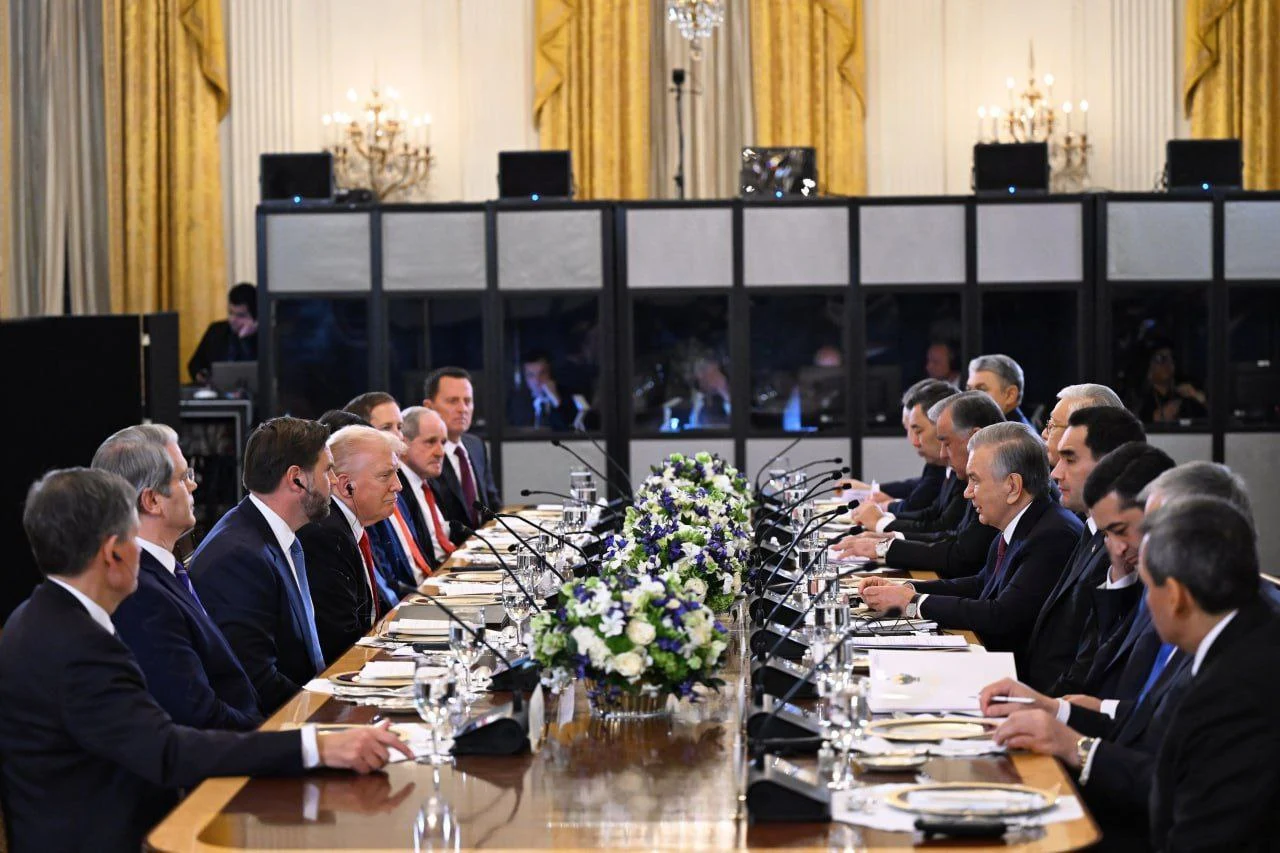 A STRATEGIC CROSSROADS IN EURASIAN GEOPOLITICS: THE EUROPEAN UNION’S CENTRAL ASIA POLICY IN THE CONTEXT OF THE C5+1 FORMAT AND TÜRKİYE’S ROLE
A STRATEGIC CROSSROADS IN EURASIAN GEOPOLITICS: THE EUROPEAN UNION’S CENTRAL ASIA POLICY IN THE CONTEXT OF THE C5+1 FORMAT AND TÜRKİYE’S ROLE
Hazel ÇAĞAN ELBİR 22.01.2026
-
 TURKISH MIGRANTS AND THEIR CONTRIBUTION TO TECHNOLOGICAL DEVELOPMENT
TURKISH MIGRANTS AND THEIR CONTRIBUTION TO TECHNOLOGICAL DEVELOPMENT
Teoman Ertuğrul TULUN 24.03.2021 -
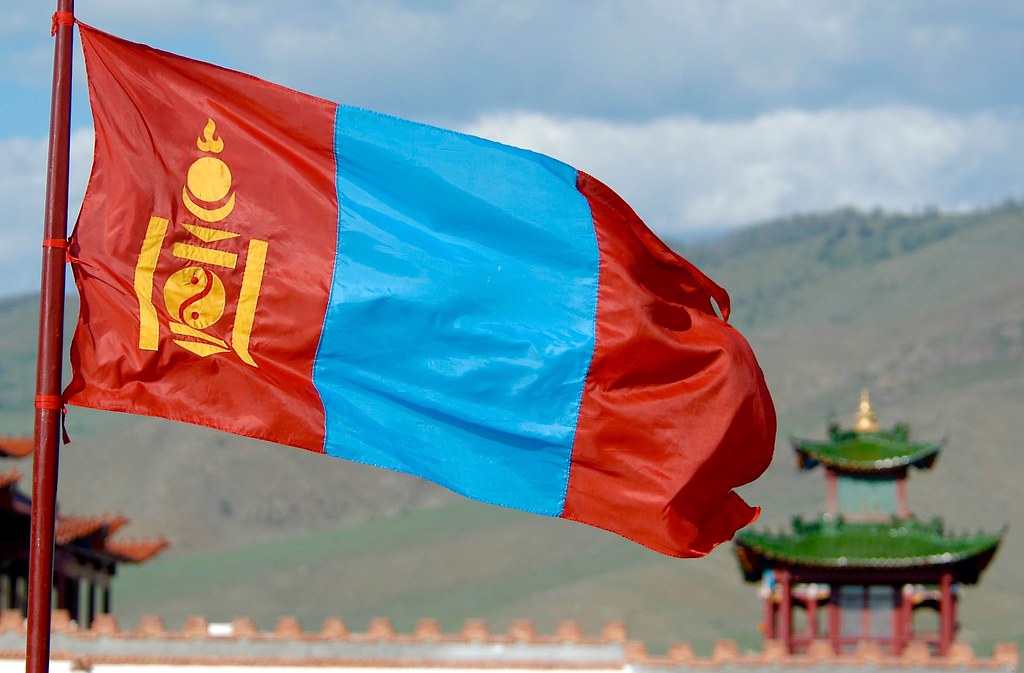 MONGOLIA’S SEARCH FOR BALANCE IN ITS FOREIGN POLICY
MONGOLIA’S SEARCH FOR BALANCE IN ITS FOREIGN POLICY
Gülperi GÜNGÖR 28.08.2020 -
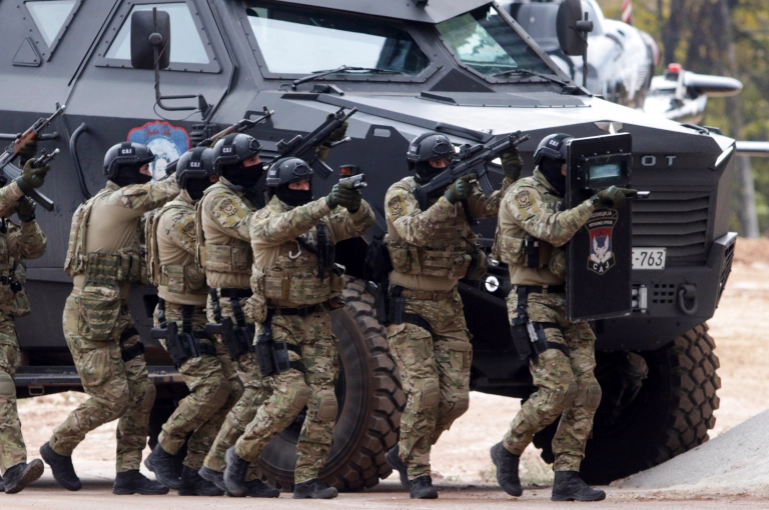 BOSNIA AND HERZEGOVINA FACES THE EXISTENTIAL THREAT OF SEPARATISM
BOSNIA AND HERZEGOVINA FACES THE EXISTENTIAL THREAT OF SEPARATISM
Teoman Ertuğrul TULUN 09.11.2021 -
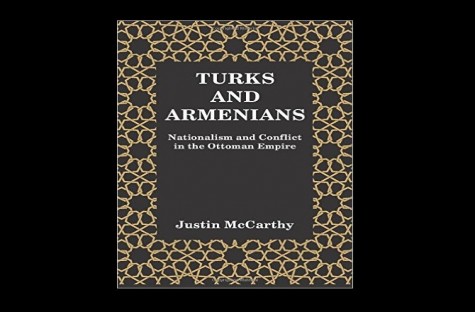 CHAPTER BY CHAPTER SYNOPSIS AND REVIEW OF TURKS AND ARMENIANS: NATIONALISM AND CONFLICT IN THE OTTOMAN EMPIRE BY JUSTIN MCCARTHY - 4
CHAPTER BY CHAPTER SYNOPSIS AND REVIEW OF TURKS AND ARMENIANS: NATIONALISM AND CONFLICT IN THE OTTOMAN EMPIRE BY JUSTIN MCCARTHY - 4
Ali Murat TAŞKENT 22.10.2015 -
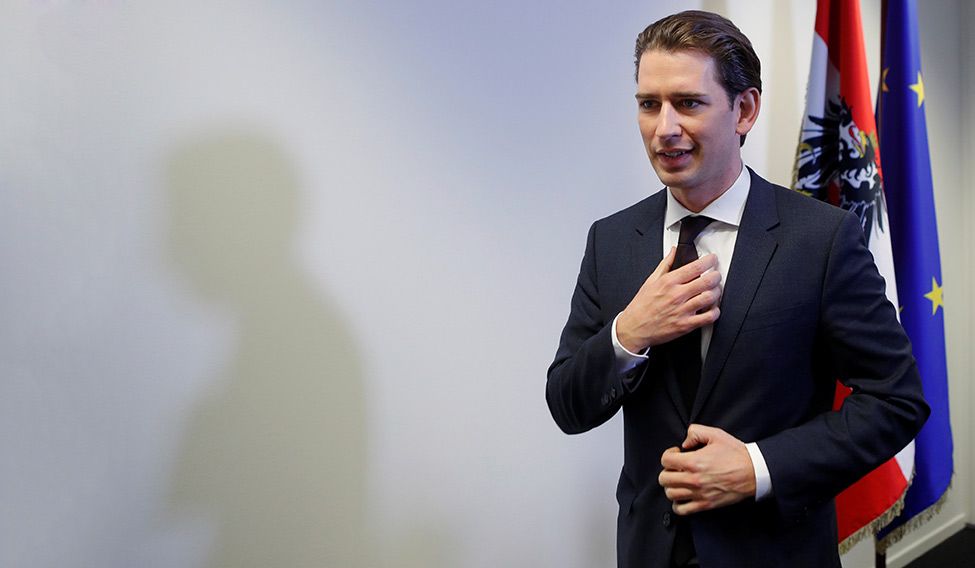 EUROPE’S CHALLENGE WITH THE FAR-RIGHT: AUSTRIA
EUROPE’S CHALLENGE WITH THE FAR-RIGHT: AUSTRIA
Hazel ÇAĞAN ELBİR 25.12.2017
-
25.01.2016
THE ARMENIAN QUESTION - BASIC KNOWLEDGE AND DOCUMENTATION -
12.06.2024
THE TRUTH WILL OUT -
27.03.2023
RADİKAL ERMENİ UNSURLARCA GERÇEKLEŞTİRİLEN MEZALİMLER VE VANDALİZM -
17.03.2023
PATRIOTISM PERVERTED -
23.02.2023
MEN ARE LIKE THAT -
03.02.2023
BAKÜ-TİFLİS-CEYHAN BORU HATTININ YAŞANAN TARİHİ -
16.12.2022
INTERNATIONAL SCHOLARS ON THE EVENTS OF 1915 -
07.12.2022
FAKE PHOTOS AND THE ARMENIAN PROPAGANDA -
07.12.2022
ERMENİ PROPAGANDASI VE SAHTE RESİMLER -
01.01.2022
A Letter From Japan - Strategically Mum: The Silence of the Armenians -
01.01.2022
Japonya'dan Bir Mektup - Stratejik Suskunluk: Ermenilerin Sessizliği -
03.06.2020
Anastas Mikoyan: Confessions of an Armenian Bolshevik -
08.04.2020
Sovyet Sonrası Ukrayna’da Devlet, Toplum ve Siyaset - Değişen Dinamikler, Dönüşen Kimlikler -
12.06.2018
Ermeni Sorunuyla İlgili İngiliz Belgeleri (1912-1923) - British Documents on Armenian Question (1912-1923) -
02.12.2016
Turkish-Russian Academics: A Historical Study on the Caucasus -
01.07.2016
Gürcistan'daki Müslüman Topluluklar: Azınlık Hakları, Kimlik, Siyaset -
10.03.2016
Armenian Diaspora: Diaspora, State and the Imagination of the Republic of Armenia -
24.01.2016
ERMENİ SORUNU - TEMEL BİLGİ VE BELGELER (2. BASKI)
-
AVİM Conference Hall 24.01.2023
CONFERENCE TITLED “HUNGARY’S PERSPECTIVES ON THE TURKIC WORLD"









